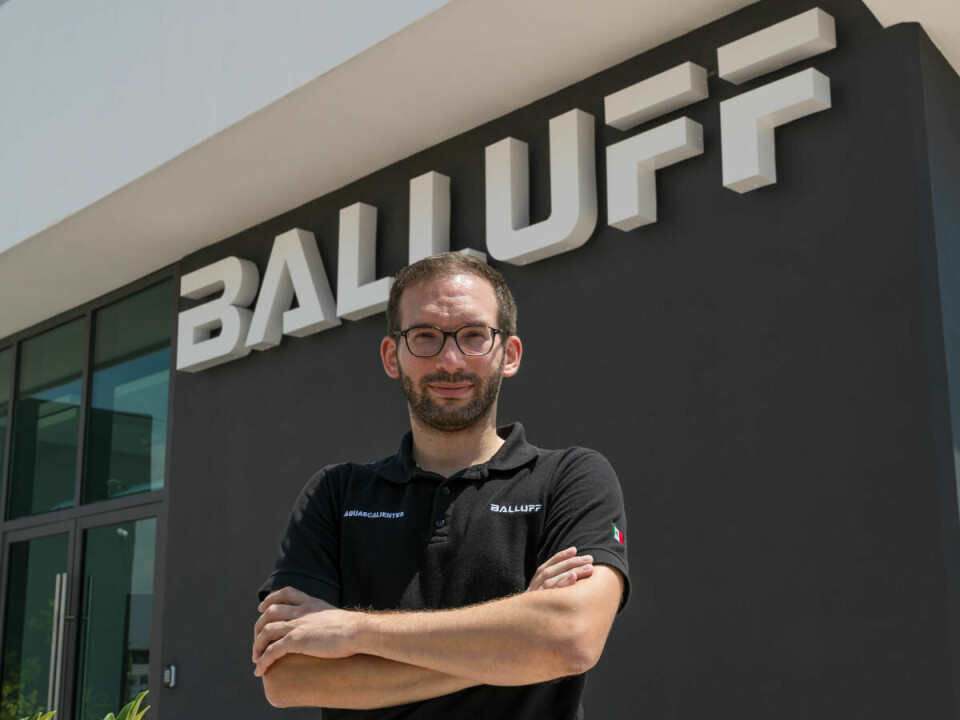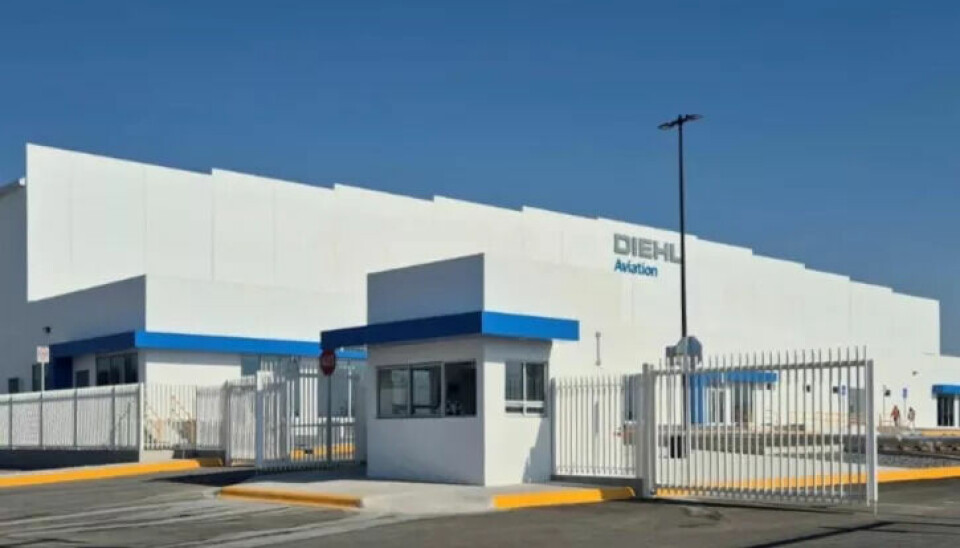Tariff risks stop boom
Production location: Ambitious Mexico put on 'hold'

Mexico was considered a winner of the nearshoring trend - until high tariffs and political uncertainties abruptly slowed the boom. Now a setback with global consequences threatens.
Mexico has a lot to offer as a production location, proximity to the USA, low wages, and a broad industrial base, which has also been co-founded by German companies since the 1960s. Edwin Schuh from the Mexican office of the Federal Republic of Germany's economic development agency GTAI (Germany Trade & Invest) on the country's recent development: "Mexico has overtaken Canada and China in recent years and has become the most powerful trading partner of the USA." The trade volume between the two countries amounted to around 840 billion US dollars in 2024, which according to Schuh is a worldwide record.
Around 2,100 German companies, mainly automobile manufacturers and their suppliers, but also companies from the mechanical engineering, electronics, and healthcare sectors, are jointly responsible for the steady trade flows between the two nations.
Germany ranks fourth among the countries with the highest direct investments, with around 36 billion US dollars accumulated between 2006 and 2024, according to figures from the Mexican Ministry of Economy. Since the pandemic, Mexico's importance as a production location has further increased. 'Nearshoring' was the motto.
Mexico wants to be in the top ten of economic nations
The dependency on China had to be minimized - for Mexico, this was a unique opportunity to establish itself from a workshop to an industrial location with greater manufacturing depth. “A big leap supported by the head of government Claudia Sheinbaum with her Plan Mexico,” says Prof. Günther Maihold, professor at the Latin America Institute of the Free University of Berlin.
If Mexico manages to raise the quality and technology level in the country and establish just-in-time capabilities, an import substitution would indeed be possible. “Mexico could try to replace supplies from China with national production,” says Prof. Maihold. The country with the most trade agreements worldwide wants to rise to the top ten of economic nations by 2030.
Trump's tariff policy throws a wrench in Mexico's plans
But now Donald Trump has dealt a major blow to the country's hopes. “Thanks to Trump's erratic tariff policy, the nearshoring boom has gone significantly down the drain,” says Prof. Maihold. High tariffs were imposed and then withdrawn again in a very short time. “For industrial development, this up and down is deadly, for European companies as well as for American ones,” says Prof. Maihold.
In addition, a workpiece usually has to be transported across the border between Mexico and the USA several times before it ends up as part of a finished product with the consumer. "German manufacturers that do not have a location in the USA will no longer be competitive," says Maihold. The car manufacturer Audi has temporarily stopped all exports to the USA.
This is how important Mexico is for Balluff
The management of Diehl Aviation is also closely monitoring the development. "High tariffs on aerospace products would be a major disadvantage for the industry, which is of great importance to the USA," says Nicola Schill, Vice President Global Footprint, Diehl Aviation.

The consequence of this unpredictability: companies are holding back their investments, and new startups are not emerging. According to the real estate consulting platform SiiLA, 31 percent fewer foreign companies are already settling in Mexico than before Trump. The number of Mexican business startups has decreased by 43 percent. "New investments are being slowed down for the time being. Companies are waiting to see how the tariff situation develops," says GTAI office manager Schuh.
Ongoing investment projects are, however, being continued: “BMW and Audi, for example, are currently upgrading their plants for the production of electric vehicles.” Products that fall under the USMCA free trade agreement are also not affected - at least for now. “We do not pay tariffs to the USA,” confirms Andreas Schönle of Balluff. The sensor manufacturer began establishing a new production site in Aguascalientes, a centrally located city in the state of the same name, in 2023. Andreas Schönle was the project manager responsible for the new construction.
Some of Balluff's products also remain in the country. “Mexico is one of our top 5 markets,” says Schönle. For Balluff, as for many of the local companies, Mexico remains an ideal location. From Aguascalientes, Balluff can deliver to its customers in the country, in the USA, and Canada by truck. “Cost-wise, this is absolutely unbeatable compared to air freight from Europe or Asia,” says Schönle.
Diehl Aviation is also investing in Mexico

Nicola Schill, responsible for the establishment of Diehl Aviation in Mexico, also sees a great advantage of the new location in its proximity to Diehl Aviation's customers - for example, in the USA, Canada, and Brazil. “The four most important top airlines are located in the USA,” she reports. Construction of the new plant in the aerospace technology cluster Querétaro began in August 2024. “Thanks to the active support of Grupo Chufani, the Diehl plant was built in a record time of just eight months in a new industrial park,” reports Schill, who has been with Diehl Aviation for 18 years. For the A220, the assembly of the luggage compartments takes place here, mostly by hand. “We plan to gradually increase the depth of production. More products are to be added,” reports the manager. There is enough space in the 8,200 square meter hall.
Balluff manufactures in Mexico not only products in large-scale production but also custom high mix / low volume products - mostly by hand. Balluff and Diehl benefit from the low wage level. A factory worker costs 500 to 600 dollars a month in Mexico. That is even cheaper than in China. The demand for affordable skilled workers is correspondingly high, especially in the technology clusters.
It is not always easy to find and retain suitable skilled workers. Schill has developed a training concept for Diehl with the UNAQ (Universidad Aeronáutica en Querétaro) with the aim of imparting the necessary knowledge to new employees without language barriers. Talented employees are found locally with the support of a recruiting firm and trained with the help of UNAQ, reports Schill.
Production in Mexico: Where it sometimes falters
“Aguascalientes is less crowded. That means there are still enough skilled workers,” says Schönle. Balluff offers an attractive compensation package, and work is done in a quiet, air-conditioned factory hall.
Where it often falters is the power supply. The Mexican power infrastructure has been underinvested for a long time. “The state power supplier CFE dominates. Private producers were held back. However, CFE produces too little green electricity,” reports Schuh. According to Schuh, there are also general bottlenecks in the power supply for industrial customers. Ensuring the energy supply was also a challenge for Diehl Aviation. “An infrastructure was initially not available,” says Schill. With the producer Ammper, the Diehl team finally managed to set up the infrastructure for a reliable energy supply.

Drug cartels control a few states
Violence is often associated with Mexico. "There are always problems in states like Tamaulipas, Sinaloa, Michoacán, or Guanajuato - where the cartels have parts of the states under their control," reports Schuh. In addition to extortion, truck robberies are part of the cartels' business model. "Trucks are repeatedly attacked on the highways between the ports and the industrial centers," reports Schuh.
However, the government under Sheinbaum is taking a much more resolute approach against the cartels than the government under López Obrador did - whose motto was "Abrazos no balazos" (hugs not bullets). In the large industrial clusters, however, it is quite safe for companies.
Schill and Schönle are impressed by the work culture in the country. "The hands-on mentality of Mexicans, their friendly culture, and pragmatic solutions are very much in line with our family business," praises Schill. The motivation of the employees is high, and German companies are respected employers, Schuh also reports: "In fact, productivity per capita in production in Mexico is measurably higher than in the USA."